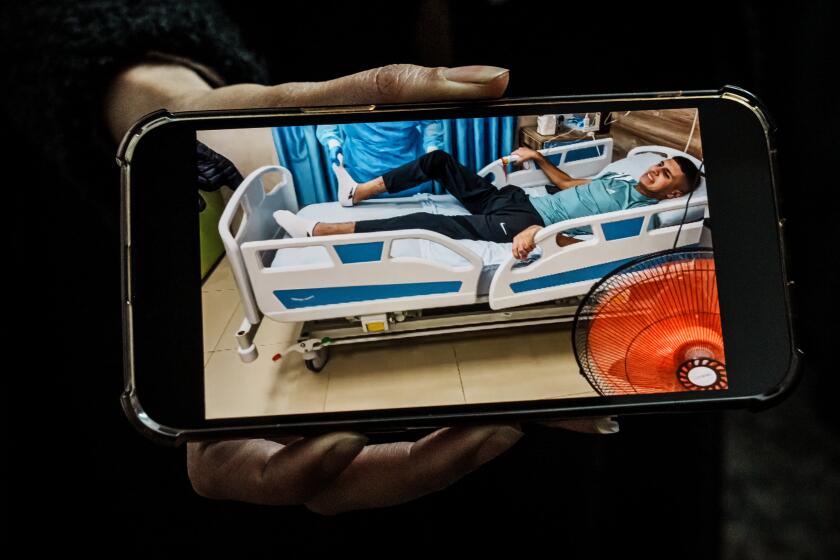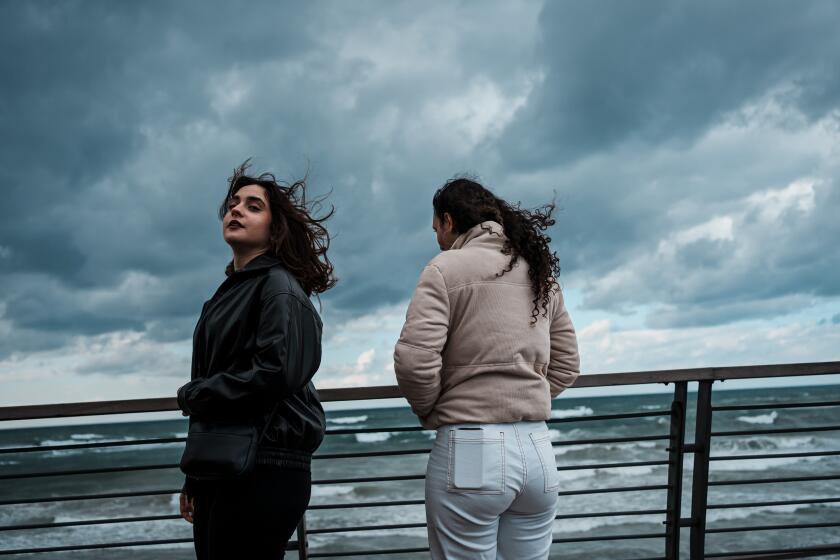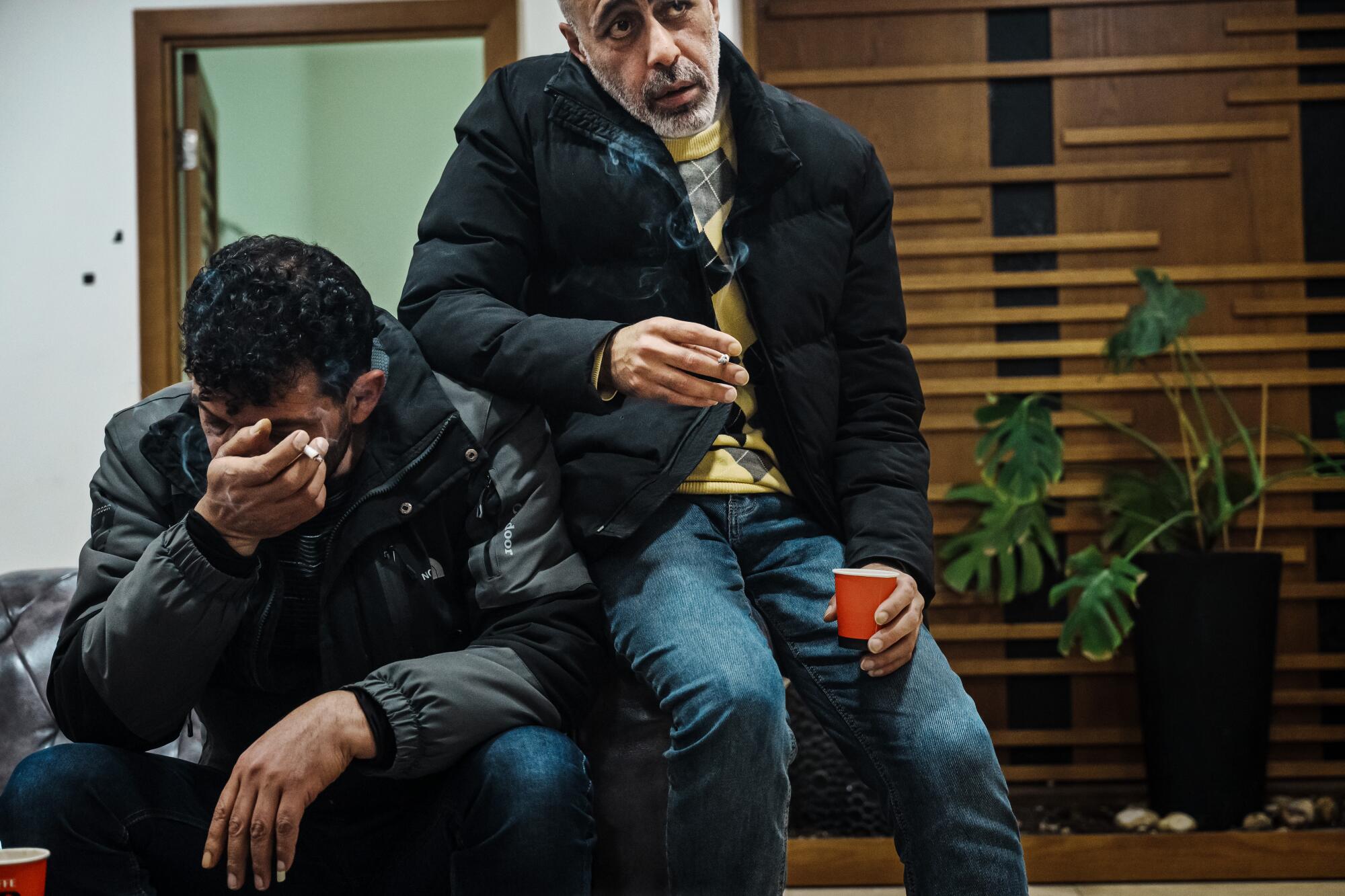
- Share via
RAMALLAH, WEST BANK — Since the war began, two friends have spent most evenings holed up at the Ramallah television studio where one of them works.
They remain long after the nightly news has taped and most of the staff has departed, chain-smoking cigarettes and talking about the only thing that matters: Gaza.
Both men have families who are trapped there. Ahmad abu Alezz’s four sons are crammed into tents in the southern city of Rafah. Mohammad Al Farra’s parents are camped in the nearby town of Al Mawasi.
At least that’s what he hopes. It has been six weeks since Al Farra’s mother or father answered one of his messages. Each day he scans lists of the latest victims of the Israel-Hamas war, praying he won’t find their names.
The Gaza Strip and the West Bank, territories that Palestinians claim for their future state, are separated by some 25 miles. But they are worlds apart.
Since 2007, when Hamas seized control in Gaza, an Israeli blockade on the territory has almost completely curtailed Palestinians’ ability to move between the two regions, and residents from each area have led increasingly disconnected lives.
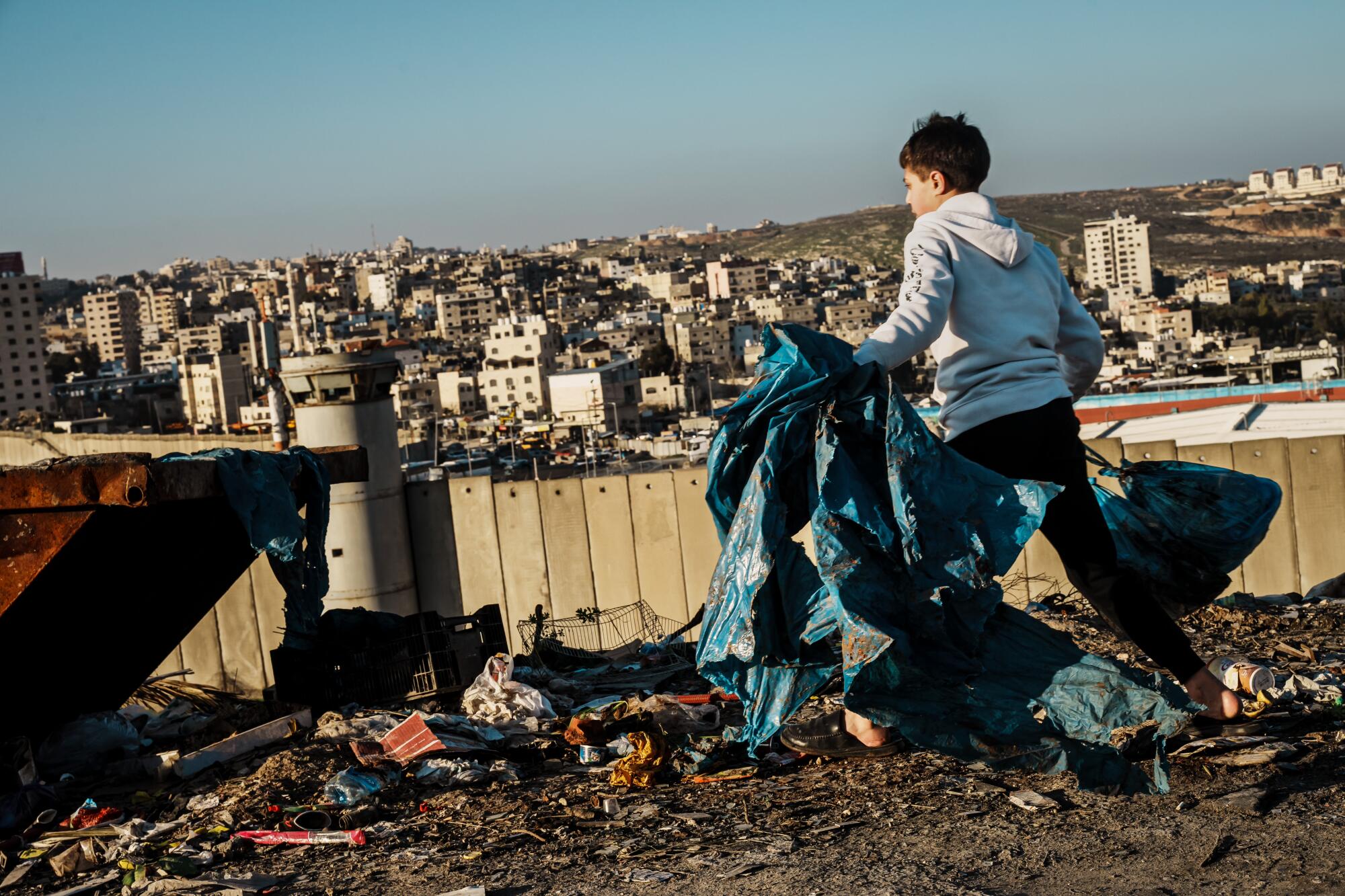
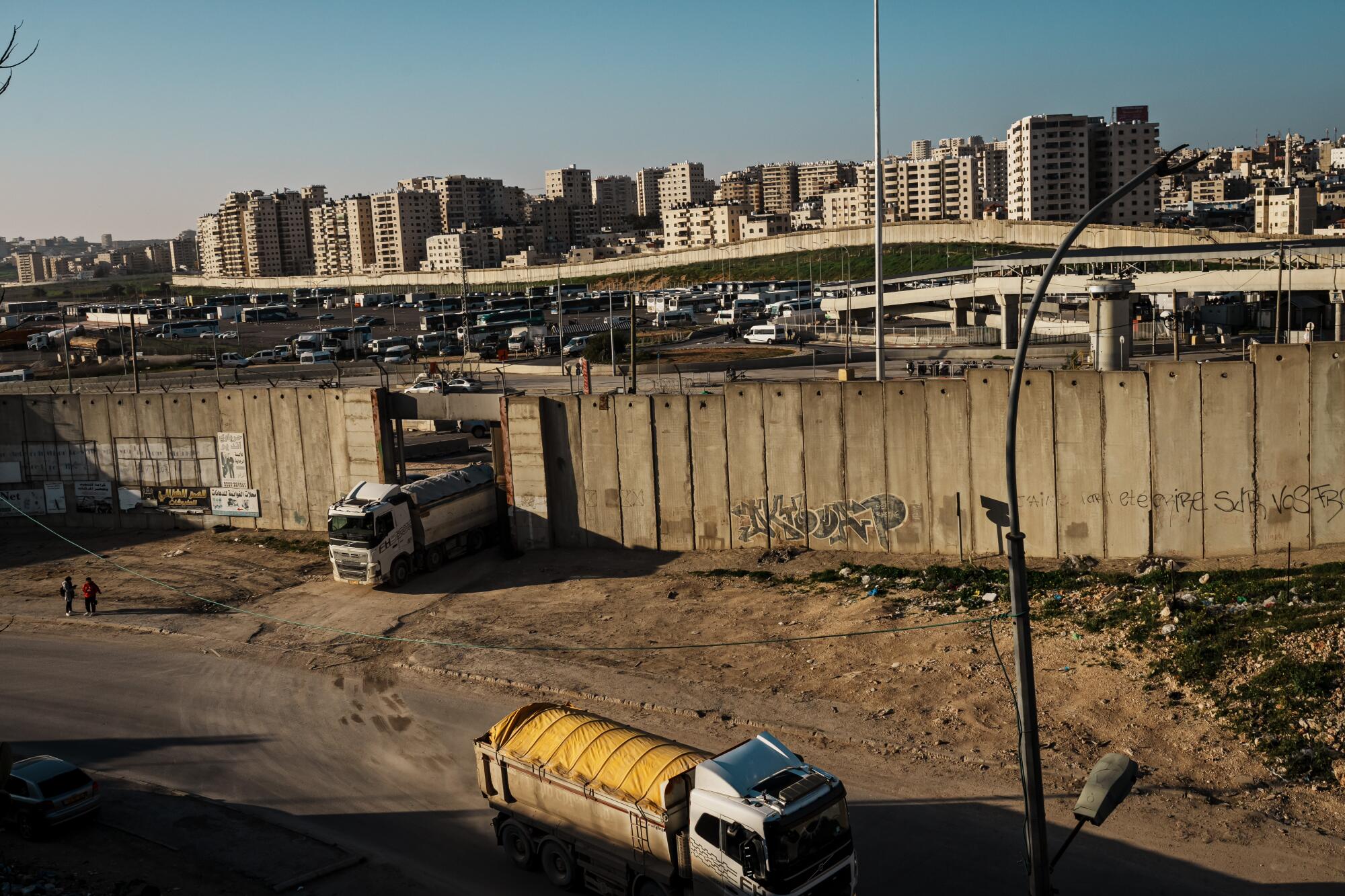
The war in Gaza has exacerbated that sense of distance, with periodic power outages and scarce internet leaving people there more cut off than ever from the outside world. In the West Bank, where news channels feature constant coverage of the nearly 30,000 Gazans who have been killed by Israel’s attacks, the war has stirred feelings of solidarity — and impotence.
Experts say Israel’s deadly raid on a West Bank hospital may have violated international laws, including a ban on combatants posing as doctors or civilians.
Al Farra, 44, can barely sleep not knowing whether his parents are alive or dead. One of the last times he spoke to his mother, she told him she was so hungry she had resorted to eating weeds.
“I’m the oldest son,” he said. “I should be there to protect them.”
He was unable to protect his sister.
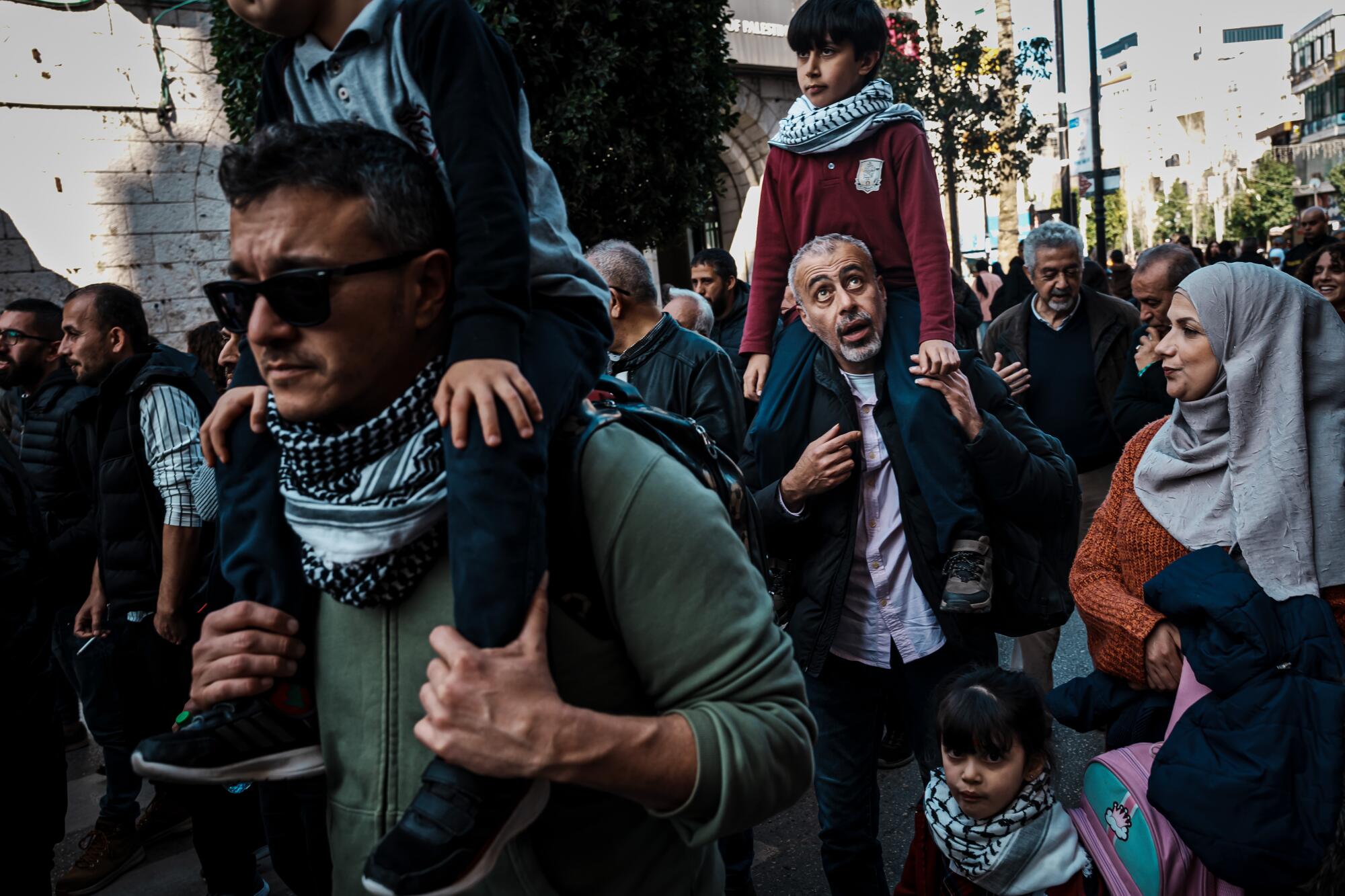
A cameraman, Al Farra left Gaza in 1999 for a work opportunity in the West Bank.
He never returned. But he managed to stay close to his family, beaming in virtually for birthdays and other celebrations.
He was especially attached to his sister, Semat, who was one year older. She was full of life, a gossip who knew so much about the neighbors that Al Farra jokingly called her Reuters, after the news agency. Semat’s eldest daughter was to be married on Oct. 25. Al Farra had sent her a gift.
Teenage friends Angelina, who is Palestinian, and Adar, who is Jewish Israeli, talk about the Hamas attacks on Israel and Israel’s war on Gaza. ‘It’s OK to disagree.’
On Oct. 7, Hamas militants broke through the border barrier that encircles Gaza and killed about 1,200 people, most of them civilians, in southern Israel. In Gaza, Al Farra’s family postponed the wedding and braced for Israel’s response.
Al Farra tried to stay in touch with his relatives as Israel unleashed a massive bombing campaign and he worked overtime as a journalist in the West Bank, where many feared spillover violence.
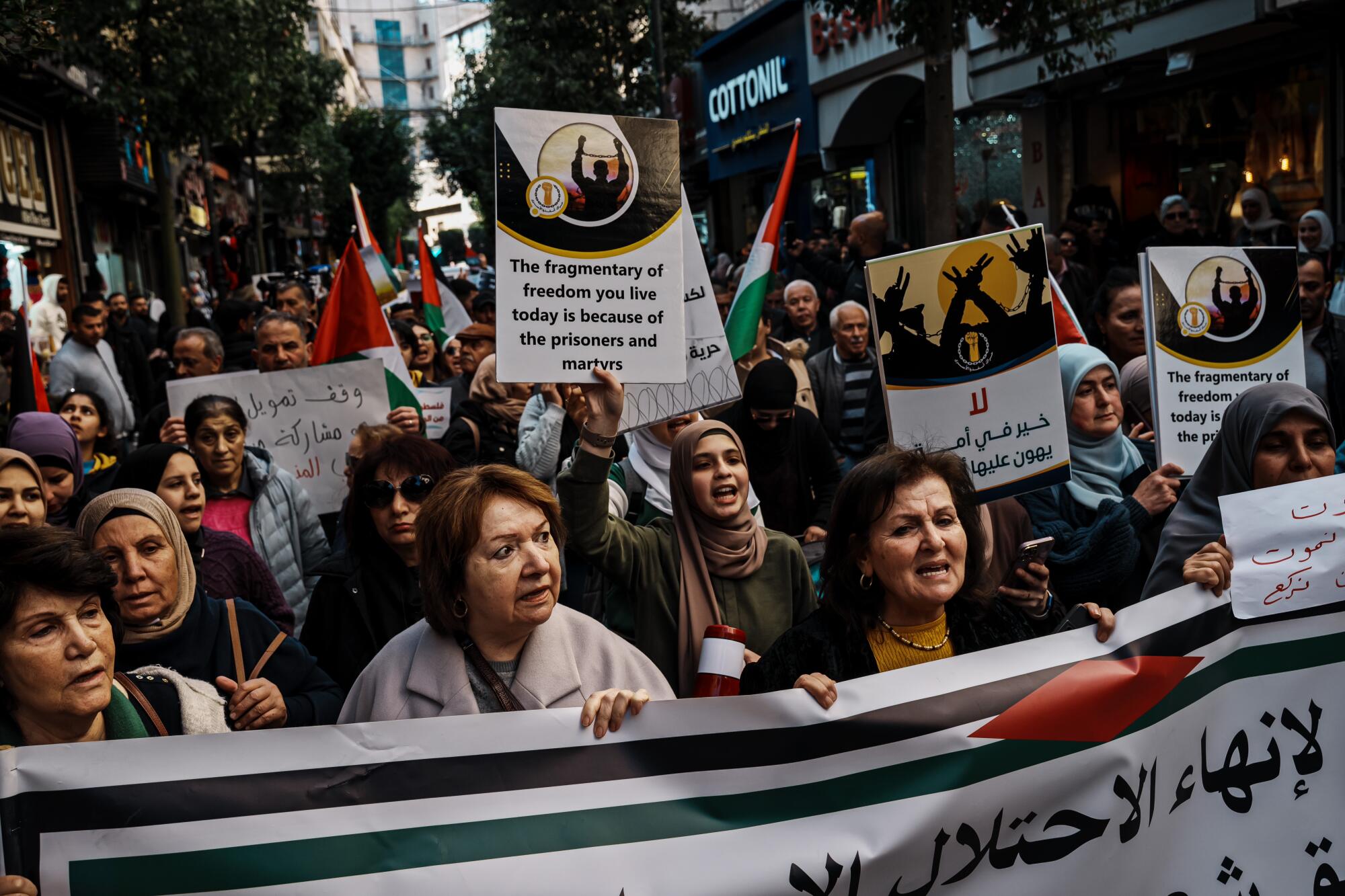
On Oct. 25, he was in the field with his camera when colleagues told him the news: A missile had struck his family’s apartment building in Gaza. His parents had survived, but Semat and most of her children — including the daughter whose wedding had once been planned for that day — were dead.
A video of Al Farra weeping, still dressed in a bulletproof vest emblazoned with the word “press,” went viral.
Mohammad Al Farra reacts to news of the death of his sister Semat and her children in a missile strike on the family’s apartment building in Gaza on Oct. 25, 2023. (Abed Dolah)
In the subsequent weeks, Al Farra found himself lingering at the studio long after he finished work. He didn’t want to bring his misery home to his wife and two children.
Abu Alezz, 52, stepped in, showing up to cook Al Farra dinners of fish seasoned with Gazan spices. The men had met years before through a mutual friend — the manager of the station — but the purgatory of war had brought them closer.
“We calm each other down,” said Al Farra. “It makes it easier.”
Abu Alezz, who lives alone in a small apartment filled with caged songbirds, was dealing with his own nightmare.
He fled Gaza in 2007 after getting cross-ways with Hamas, which had unleashed a campaign of violence against political rivals when it seized control of the enclave. His sons remained there with their mother.
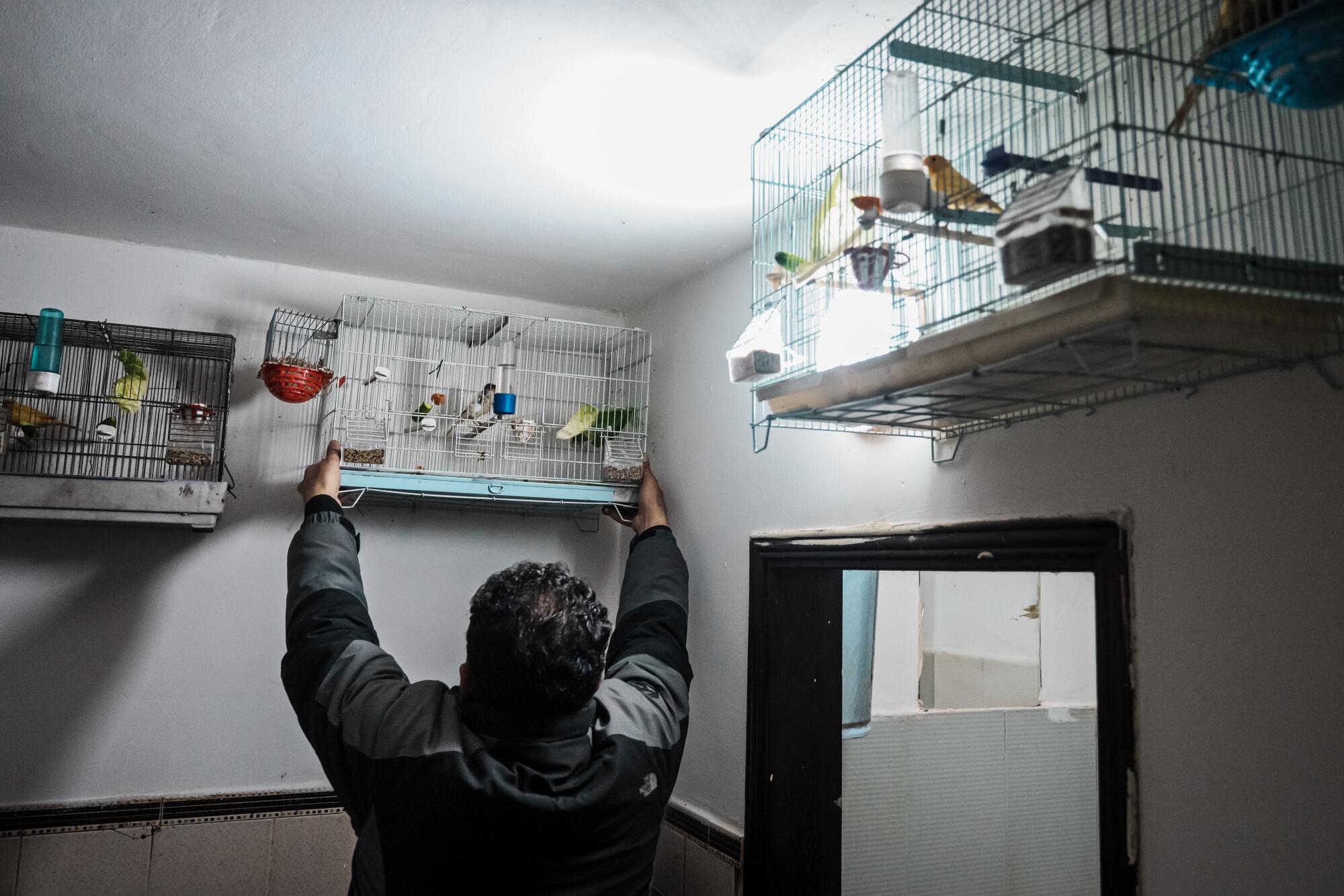
When bombs started falling in October, the family fled its home in Jabaliya and was forced to move four more times, eventually ending up with other displaced civilians — more than half of Gaza’s 2.3 million population — in Rafah.
Israel had declared the city a safe zone from the fighting.
This month, the military said it plans to invade Rafah to root out remaining Hamas fighters. Abu Alezz has been gripped with fear.
“It’s maddening,” he said. “They want to encircle 1.5 million people with tanks?”
It was approaching midnight, and the studio was mostly empty. Al Farra had his arm draped over Abu Alezz’s shoulder as they smoked and watched TV. Eventually Abu Alezz rose from the leather sofa and began to pace.
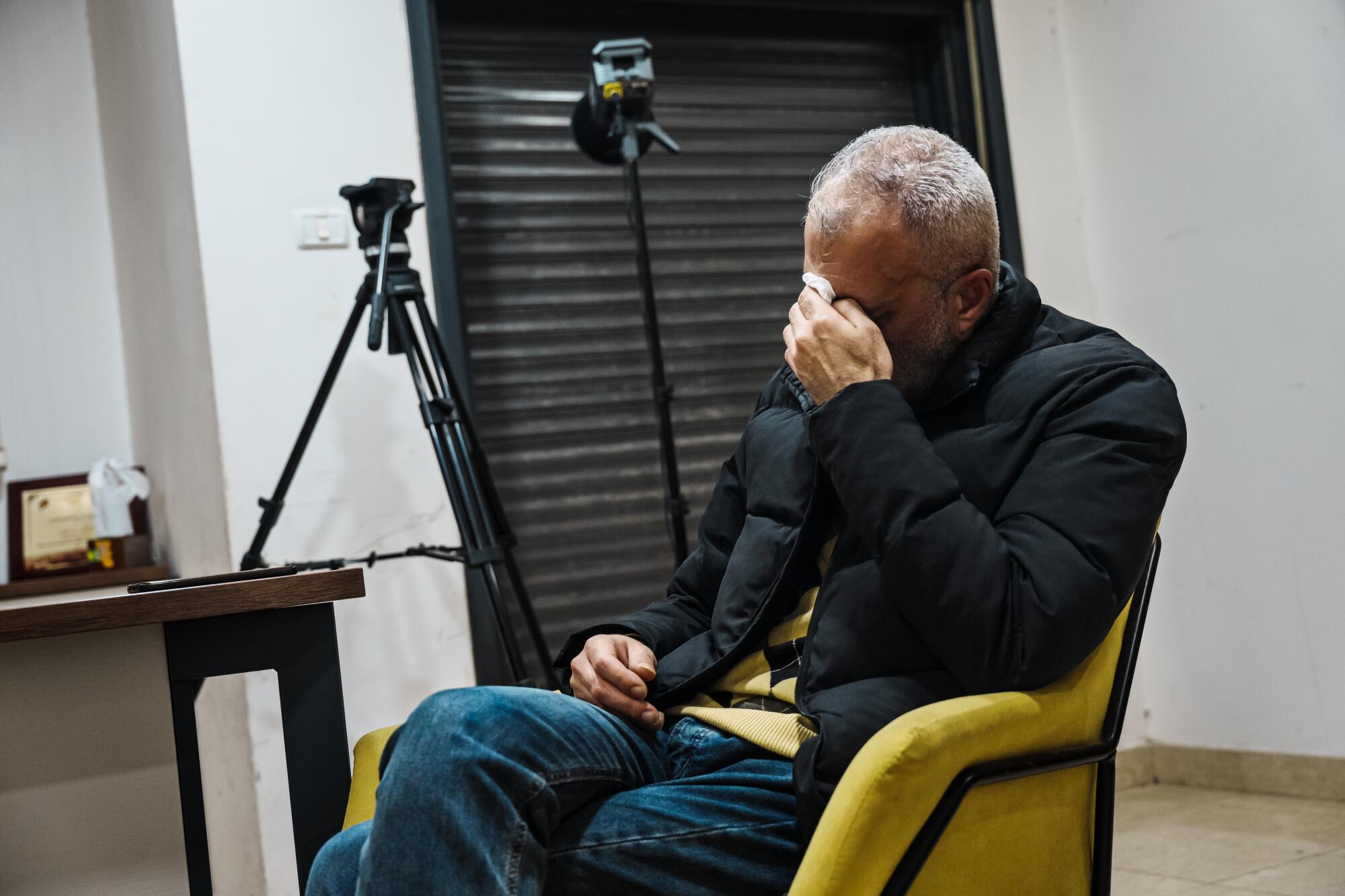
“If they invade Rafah, Israel will regret this for a million years,” he said. “How will you convince the people there to ever want peace?”
Al Farra nodded. “This is a genocide,” he said. “How will a child who saw their siblings or a parent blown apart ever forget this?”
Both lighted another cigarette.
Before Oct. 7, they each smoked a few packs a week. Now they needed two or three just to make it through the day.
For each other’s sake, they try to keep things light.
Al Farra joked that his wife is jealous of all the time he spends with Abu Alezz — and of the fish dinners his friend feeds him.
“At least she’s saving on groceries,” Abu Alezz quipped, and they laughed.
But everything comes back to the war. Images of leveled buildings in Gaza aren’t abstractions to the men who grew up there. “Of course I know that street,” Al Farra said when an image flashed on screen showing a bomb crater in a residential neighborhood in Khan Yunis.
For months, Abu Alezz has helped people stuck in Gaza recover identity documents they lost while fleeing their homes, searching for birth certificates in archives kept by Palestinian authorities in the West Bank.
He also takes advantage of his Palestinian phone number, which allows him to make calls to Gaza, to facilitate conversations between people there with loved ones abroad.

On a recent evening, Abu Alezz put two phones together, screen to screen. On one line was a man in Egypt. On the other, a relative of his in Gaza.
“Is there any flour?” the man in Egypt asked.
“Yes, but not a lot. People are starving. People are sick.”
“How is my dad?”
“He’s OK. But the situation is very difficult.”
Al Farra also tries to stay busy. He works overtime, and sometimes takes his young children, 5-year-old Lilia and 8-year-old Yosef, to protests calling for a cease-fire.
At a recent event in downtown Ramallah, the kids each wore a checkered kaffiyeh scarf — long a symbol of Palestinian resistance. They helped carry a banner memorializing the war’s victims, a majority of whom are women and children. It included the names of Al Farra’s sister and her children.
Their deaths thrust Al Farra into the center of a story that he had long covered as a journalist. “It feels different because I am part of this thing,” he said. The death toll in Gaza was so high, he said, that few Palestinian families were untouched.
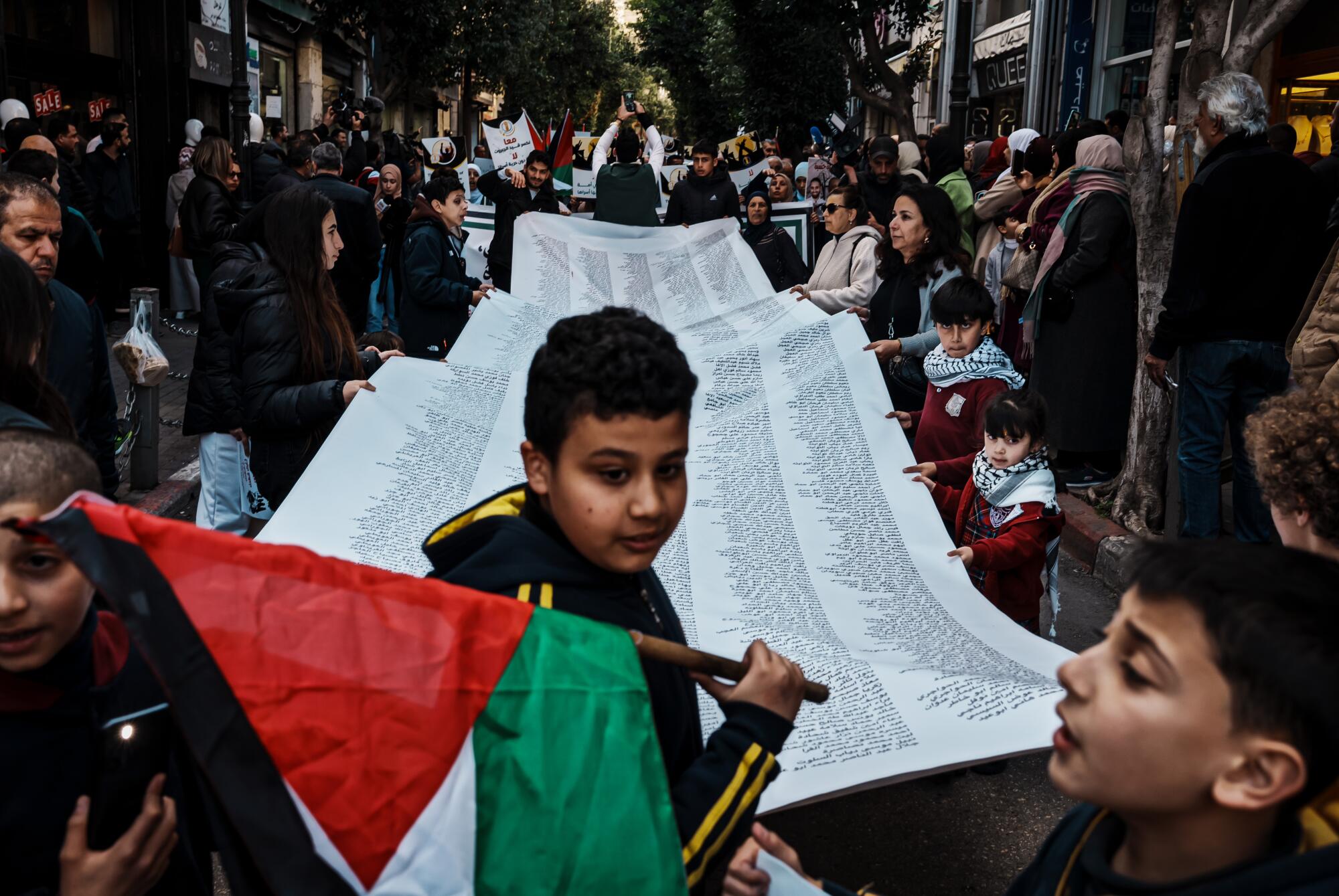
Once, Al Farra and Abu Alezz dreamed of returning to Gaza. They’d study maps of the enclave and talk about how they would like to rebuild it. No longer.
“I don’t want to go back, except to say goodbye to my sister and make her a nice grave,” Al Farra said. “I want to take all the people and move them far from there.
“My Palestinian identity is in my heart,” he said. “And I’m tired of war.”
Abu Alezz said he felt the same. He has been trying to cobble together funds to evacuate his children. If they get out alive, he wants to join them and for the family to move far from the Middle East.
But for now, all the friends could do was sit in the studio in Ramallah.
They turned back to the TV and its endless montage of destruction: missiles striking buildings, women screaming in a hospital, a young girl pulled from the rubble of a collapsed home.
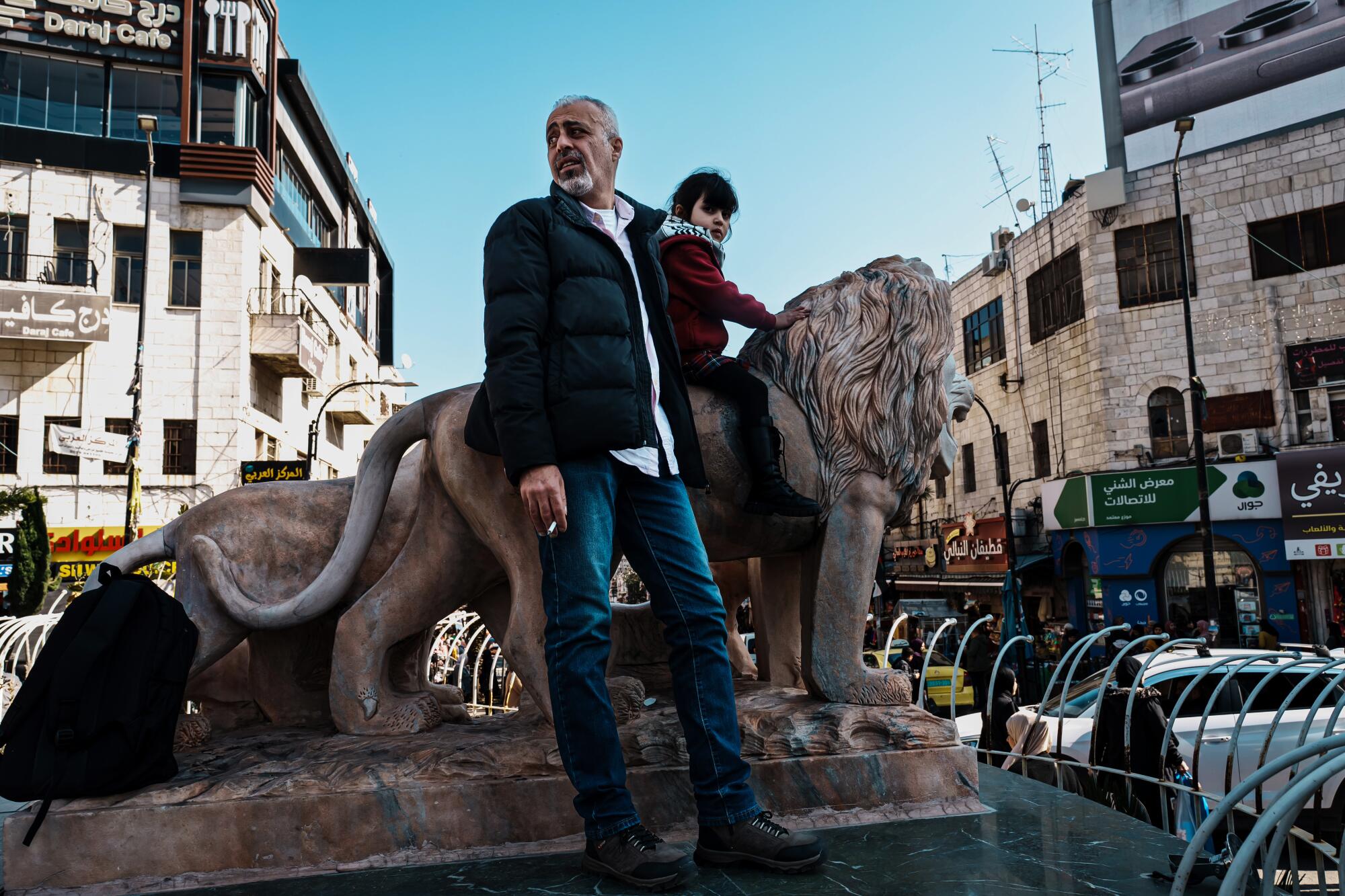
“Such a young child,” Abu Alezz remarked.
Al Farra said nothing. They sat and smoked in silence.
Times staff photographer Marcus Yam and special correspondent Asala Zreiqi in Ramallah contributed to this report.
More to Read
Sign up for Essential California
The most important California stories and recommendations in your inbox every morning.
You may occasionally receive promotional content from the Los Angeles Times.
